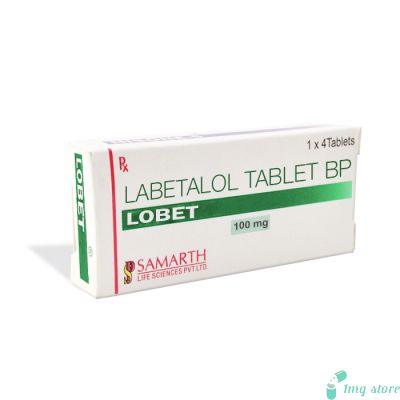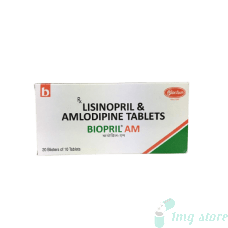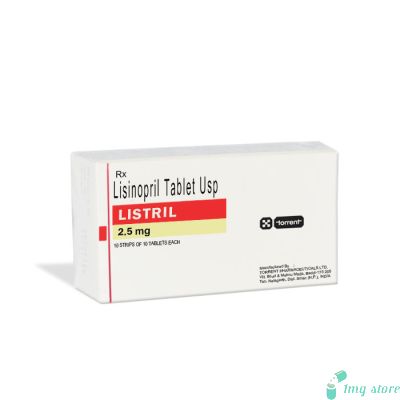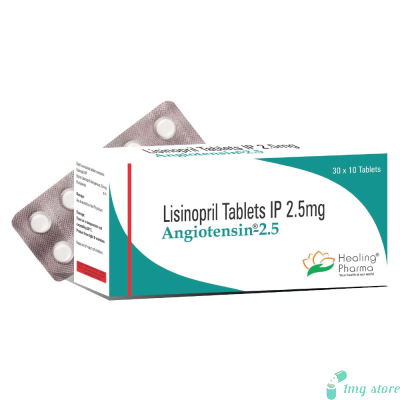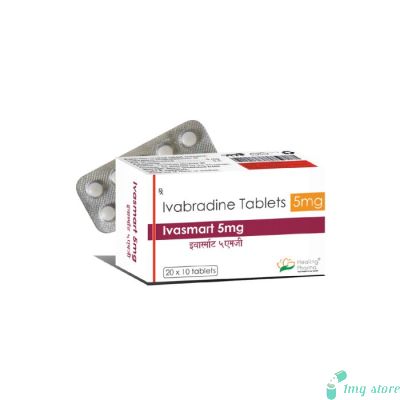Labebet Tablet (Labetalol)
Labebet Tablet, also known as Labetalol, is a medication primarily used for the treatment of hypertension (high blood pressure) and the management of certain cardiac conditions. It is also marketed under the brand name Normodyne.
Introduction of Labetalol Tablet (Labebet) and Normodyne:
Labetalol, marketed under the brand names Labebet and Normodyne, is a medication commonly prescribed for the treatment of high blood pressure (hypertension). It belongs to a class of drugs known as beta-blockers, which work by blocking the action of certain chemicals in the body that cause blood vessels to constrict and the heart to beat faster. Labebet and Normodyne contain the active ingredient labetalol hydrochloride, which acts as a non-selective beta-adrenergic receptor antagonist. This means it blocks both beta-1 and beta-2 receptors found in various tissues throughout the body, including the heart and blood vessels.
By blocking the beta receptors, labetalol helps to reduce the workload on the heart and dilates the blood vessels, allowing blood to flow more easily through the arteries and veins. This results in a decrease in blood pressure and helps to prevent certain heart-related conditions, such as Angina (chest pain) and myocardial infarction (heart attack).
Labetalol 200 mg tablets are a specific dosage strength of the medication. They contain 200 milligrams of labetalol hydrochloride and are commonly prescribed for the treatment of high blood pressure. The dosage prescribed may vary based on the individual's condition and response to treatment, and it is important to follow the doctor's instructions and take the medication as directed. Labetalol 100 mg tablets are another dosage strength of the medication. They contain 100 milligrams of labetalol hydrochloride. Similar to the 200 mg tablets, these are also used to treat high blood pressure. The dosage prescribed will depend on the individual's specific needs, and it is crucial to adhere to the prescribed dosage and guidelines provided by the healthcare professional.
Labetalol during pregnancy: Labetalol may be prescribed during pregnancy for certain cases of high blood pressure. It is considered relatively safe for use during pregnancy, especially in comparison to some other blood pressure medications. However, it is essential to consult with a healthcare provider to assess the potential risks and benefits of labetalol in your specific pregnancy situation. The doctor will determine the appropriate dosage and monitor your condition closely throughout the pregnancy.
Labetalol for anxiety: Labetalol is primarily prescribed for the treatment of high blood pressure and is not typically used as a primary medication for anxiety disorders. While some beta-blockers may be occasionally prescribed off-label to manage certain anxiety symptoms, labetalol is not commonly used for this purpose. It is important to consult with a mental health professional who can provide appropriate guidance and recommend suitable treatments specifically tailored for anxiety disorders.
Before starting labetalol treatment, inform your healthcare provider about any pre-existing medical conditions or allergies you may have. Also, disclose all other medications, supplements, or herbal products you are currently taking, as they may interact with labetalol and affect its effectiveness or increase the risk of side effects.
In conclusion, Labetalol tablets (Labebet and Normodyne) are widely used in the management of high blood pressure. By blocking beta receptors, labetalol helps to reduce blood pressure and improve blood flow. If prescribed this medication, it is important to adhere to your doctor's instructions and report any concerns or side effects.
Here are some benefits of Labetalol:
Lowering Blood Pressure: Labetalol helps reduce High Blood Pressure by dilating blood vessels and reducing the workload on the heart, which can lower the risk of heart-related complications.
Heart Disease Management: Labetalol may be prescribed to manage certain heart conditions, such as angina (chest pain) and heart attack, by improving blood flow and reducing strain on the heart.
Pregnancy-Related Hypertension: Labetalol is considered safe for use during pregnancy and may be prescribed to manage high blood pressure in pregnant women, reducing the risk of complications for both the mother and the baby.
Flexible Dosage Strengths: Labetalol is available in different dosage strengths, allowing healthcare providers to tailor the treatment to the individual's specific needs and optimize blood pressure control.
Well-Tolerated: Labetalol is generally well-tolerated, and most side effects are mild and transient. This makes it a suitable option for many individuals who require blood pressure management.
Combination Therapy: Labetalol can be used in combination with other medications to enhance blood pressure control, especially in cases where monotherapy is insufficient.
Here are a few precautionary measures to consider while utilizing Labetalol
Pre-existing Heart Conditions: Individuals with certain heart conditions, such as congestive heart failure or heart block, should exercise caution when using Labetalol. The medication's effects on heart rate and blood pressure should be closely monitored by a healthcare professional.
Blood Pressure Monitoring: Regular monitoring of blood pressure is essential while taking Labetalol (Normodyne). This helps ensure that the medication is effectively controlling blood pressure within the desired range.
Orthostatic Hypotension: Labetalol may cause orthostatic hypotension, a sudden drop in blood pressure upon standing up. It is important to rise slowly from a seated or lying position to minimize the risk of dizziness or fainting.
Diabetes: Labetalol can mask some of the symptoms of low blood sugar in individuals with diabetes. Blood sugar levels should be monitored closely, especially if experiencing any unusual symptoms.
Allergic Reactions: Individuals with a known allergy to Labetalol or other beta-blockers should avoid using the medication. If any signs of an allergic reaction, such as rash, itching, or swelling, occur, medical attention should be sought immediately.
Asthma and Respiratory Conditions: Labetalol can potentially worsen symptoms in individuals with asthma or other respiratory conditions. It is important to inform the healthcare provider of any pre-existing respiratory conditions before starting Labetalol.
Surgery: If scheduled for surgery, including dental procedures, it is important to inform the healthcare professional about Labetalol usage. The medication may interact with certain anesthetics and affect blood pressure control during the procedure.
Here are some uses of Labetalol related to heart and blood pressure:
Hypertension (High Blood Pressure): Labetalol is commonly prescribed for the management of hypertension, helping to lower blood pressure and reduce the risk of heart-related complications.
Hypertensive Emergency: Labetalol can be used in emergency situations to rapidly lower severe High Blood Pressure, preventing organ damage and cardiovascular events.
Chronic Stable Angina: Labetalol (Normodyne) may be prescribed to individuals with chronic stable angina, a type of chest pain caused by reduced blood flow to the heart muscle. It helps relieve symptoms and improve exercise tolerance.
Hypertensive Pregnancy Disorders: Labetalol is considered safe for use during pregnancy and may be prescribed to manage hypertensive disorders of pregnancy, such as preeclampsia, to protect the mother and baby from complications related to high blood pressure.
Heart Failure: Labetalol may be used as part of a comprehensive treatment plan for individuals with Heart Failure to help improve heart function and reduce symptoms.
Arrhythmias: In certain cases, Labetalol can be used to manage certain types of abnormal heart rhythms (arrhythmias) by regulating heart rate and rhythm.
Possible symptoms of Labetalol might include:
Dizziness: Labetalol can cause dizziness, especially when changing positions (e.g., standing up quickly). It is important to rise slowly to minimize the risk of falls or injury.
Fatigue: Some individuals may experience tiredness or fatigue while taking Labetalol. This side effect can affect daily activities, and it is advisable to avoid activities that require alertness until the body adjusts to the medication.
Nausea: Labetalol (Normodyne) can occasionally cause gastrointestinal symptoms such as nausea or an upset stomach. Taking the medication with food or as directed by the healthcare provider may help alleviate this side effect.
Slow heartbeat: Labetalol's action in lowering blood pressure can also slow down the heart rate. While this is generally well-tolerated, individuals with pre-existing bradycardia (slow heart rate) may experience more pronounced symptoms and should be closely monitored.
Low blood pressure (hypotension): Labetalol's primary effect is to lower blood pressure, and in some cases, it can cause blood pressure to drop too low. This can result in symptoms like lightheadedness, fainting, or feeling weak. Monitoring blood pressure regularly and adjusting the dosage as necessary is essential to maintain a proper balance.
Answers to Common Questions about Labebet Tablet (Labetalol)
Can I suddenly stop taking Labetalol?
Answer: No, it is not recommended to abruptly stop taking Labetalol. Suddenly discontinuing the medication can cause a rebound increase in blood pressure and may lead to other adverse effects. It is important to follow your healthcare provider's instructions on gradually reducing the dosage if discontinuation is necessary.
Can Labetalol (Normodyne) be used in patients with asthma?
Answer: Labetalol should be used with caution in patients with asthma or other respiratory conditions. It may potentially worsen respiratory symptoms. It is crucial to discuss your medical history with your doctor to determine the suitability of Labetalol or explore alternative treatment options.
Can I drink alcohol while taking Labetalol?
Answer: Consumption of alcohol should be limited or avoided when taking Labetalol. Alcohol can enhance the blood pressure-lowering effect of Labetalol, potentially causing excessive drowsiness, dizziness, or fainting. It is best to consult with your healthcare provider regarding alcohol use while on this medication.
Can Labetalol be used to treat anxiety?
Answer: Labetalol is primarily prescribed for the treatment of high blood pressure and is not typically used as a first-line medication for anxiety disorders. While some beta-blockers may be occasionally prescribed off-label to manage certain anxiety symptoms, Labetalol is not commonly used for this purpose. It is important to consult with a mental health professional for appropriate anxiety treatment options.
Here are some medication associations of Labetalol connected with heart and circulatory strain.
Calcium Channel Blockers: Combining Labetalol with calcium channel blockers can potentially cause an excessive drop in blood pressure.
Other Beta-blockers: Concurrent use of Labetalol with other beta-blockers may result in additive effects on Heart and Blood Pressure.
Alpha-blockers: Using Labetalol with alpha-blockers can lead to an increased risk of low blood pressure and orthostatic hypotension.
Antihypertensive Medications: Labetalol (Normodyne) should be used with caution when combined with other antihypertensive medications, as it may result in further blood pressure reduction.
Monoamine Oxidase Inhibitors (MAOIs): Labetalol should not be used within 14 days of discontinuing MAOIs due to the risk of hypertensive crisis.
Nonsteroidal Anti-inflammatory Drugs (NSAIDs): NSAIDs may reduce the effectiveness of Labetalol and its ability to control blood pressure.
Diabetes Medications: Labetalol can mask some symptoms of low blood sugar, making it important to closely monitor blood sugar levels in individuals taking diabetes medications.
| Manufacturer | : | Sun Pharmaceutical Industries Ltd |
| Equivalent Brand | : | Normodyne |
| Generic Search | : | Labetalol |









